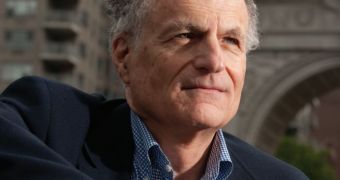The Royal Swedish Academy of Sciences announced in a press release issued on October 10 that the winners of The Sveriges Riksbank Prize in Economic Sciences in Memory of Alfred Nobel for 2011 will go to economists Thomas J. Sargent and Christopher A. Sims.
The two were awarded the famous prize “for their empirical research on cause and effect in the macroeconomy.” Sargent is a professor of economics at the New York University, and also a senior fellow at the Hoover Institution, in Stanford.
Sims is the Harold H. Helm '20 Professor of Economics and Banking at the Princeton University. Together, the researchers were able to develop a method that enabled them to answer some very thorny issues related to how modern economics work.
Some of the issues they addressed include how temporary increases in the interest rates or a tax cuts can influence GDP and inflation, as well as what happens when a central bank modifies its inflation target. Such questions are of great importance to figuring out the system.
In other words, the two economists managed to derive the nature of the causal relationship underlying the interaction between economic policy and several factors. Some of the macroeconomic variables taken into account include inflation, investments, GDP and employment.
“These occurrences are usually two-way relationships – policy affects the economy, but the economy also affects policy. Although Sargent and Sims carried out their research independently, their contributions are complementary in several ways,” the press release adds.
“The laureates' seminal work during the 1970s and 1980s has been adopted by both researchers and policymakers throughout the world. Today, the methods developed by Sargent and Sims are essential tools in macroeconomic analysis,” the official document explains.
Thomas Sargent was awarded the prize for showing that permanent changes in economic policy can be analyzed by using tools pertaining to structural macroeconomics. His main area of focus was the post-World War II world, where interactions between commercial actors were just resuming.
On the other hand, Sims was mostly focused on understanding how the economy is affected by temporary changes in economic policy and other factors. He uses a research method called vector autoregression to study these issues.
Through their work, Sargent and Sims have made their way onto an exclusive list of laureates whose work was good and influential enough to win them a Sveriges Riksbank Prize in Economic Sciences in Memory of Alfred Nobel for 2011.

 14 DAY TRIAL //
14 DAY TRIAL //